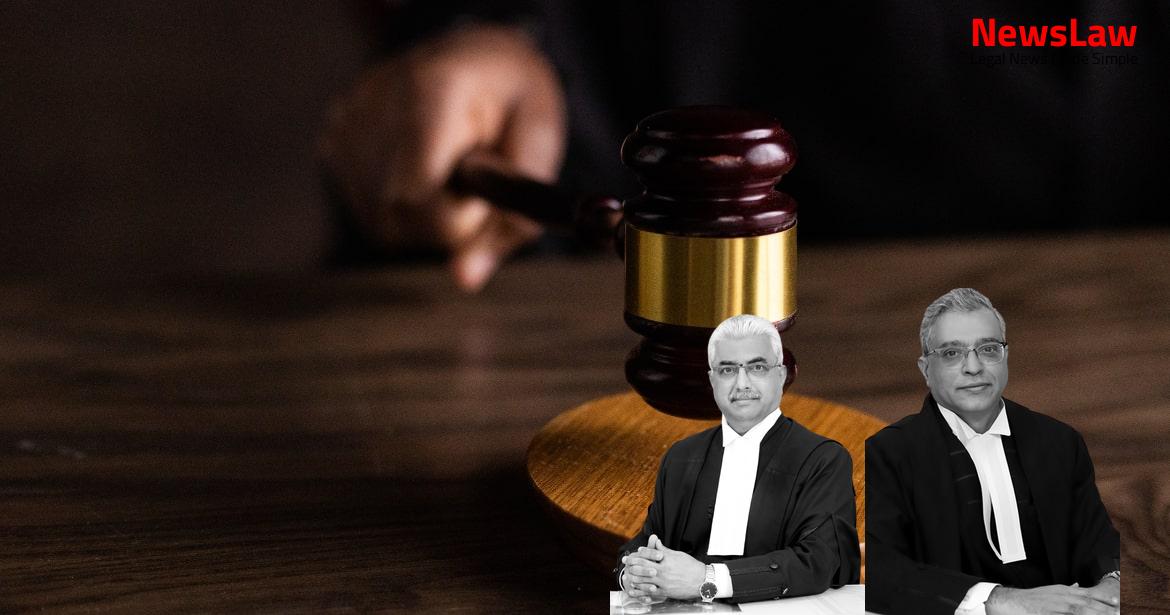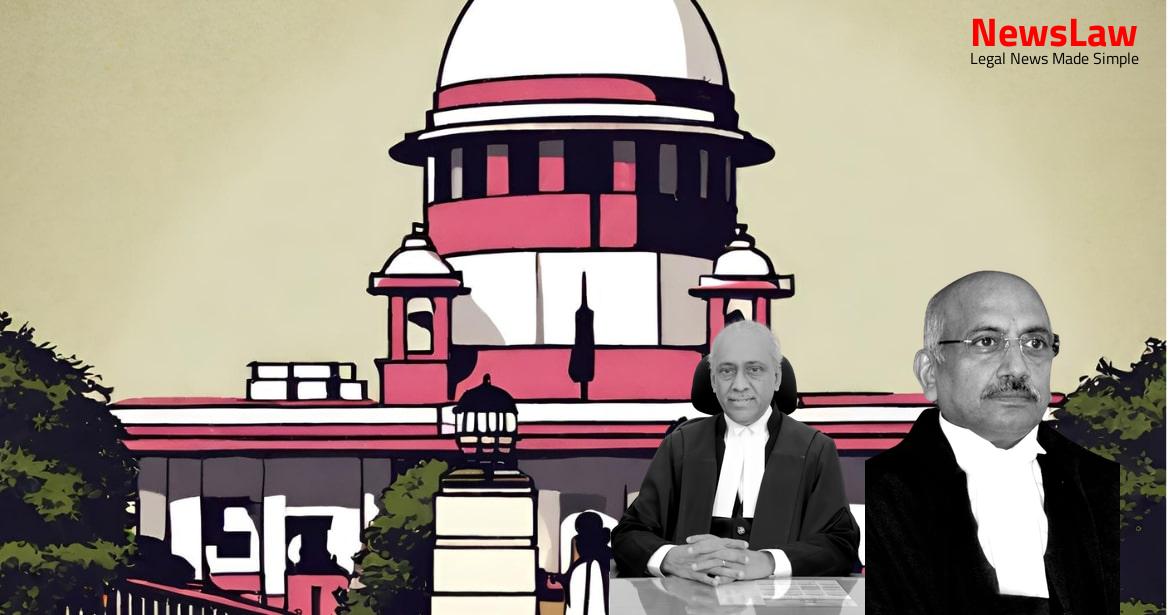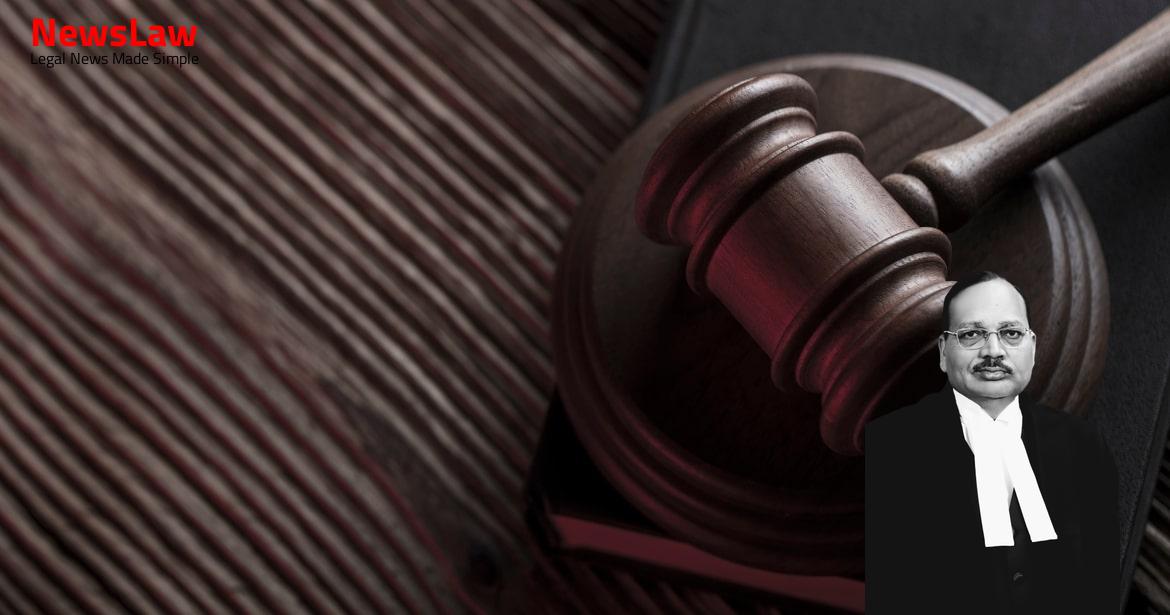In the case of Nalininath Mitra vs. State of Bihar, the Supreme Court of India delivered a significant judgement regarding a Land Lease Renewal dispute. The case involves Nalininath Mitra as the petitioner and the State of Bihar as the respondent, with important implications for land lease agreements and renewals. Let’s delve into the details of this crucial legal battle.
Facts
- The original lessee applied for renewal of the lease on 16/10/1935.
- The lease renewal case was referred to as Lease Renewal Case No.40/1935-36.
- The original lessee expired on 04/06/1941.
- The original lessee, Late Shailendra Nath Mitra, passed away in 1942, and the lease was renewed in favor of his legal heirs in 1944.
- After the renewal, there were issues regarding the renewal of the lease, which led to resumption proceedings initiated by the Collector.
- The plaintiff, the legal heirs of Jatindranath Mitra, filed a suit for declaration and permanent injunction against the determination of the lease by the Collector in 1975.
- The defendant/appellant claimed that the determination of the lease was justified due to violations of the lease agreement terms.
- The High Court dismissed the defendant’s appeal, stating that there was insufficient evidence to support the determination of the lease.
Also Read: Delhi Metro Rail Corporation v. Value Added Tax Officer: Upholding the Timely Refund Mandate
Issue
- Whether the impugned order of the High Court requires to be affirmed or reversed?
- Are the plaintiffs entitled to renewal of the lease?
- Is the order passed in Resumption Case No.6/75 illegal, void and without jurisdiction?
- Is the suit maintainable in law?
- Is the suit property correctly described?
Arguments
- The lessee accepted in a letter that lease rent and municipal taxes were not paid for several years, violating Clause 15 and 16 of the Manual of 2019.
- The High Court did not consider a document where one of the lessees admitted the building was dilapidated.
- The Tahsildar’s report stated that the building was dilapidated and occupied by outsiders, leading to the violation of certain clauses of the Bihar & Orissa Government Estates Manual, 1919.
- The application for renewal of the lease by Nalininath Mitra has not been adjudicated yet, making the resumption order illegal.
- The option of renewal lies with the lessee, and the respondents have not violated any lease terms.
- Nalininath Mitra admitted in a letter that the building was dilapidated, violating the lease agreement.
- The resumption of possession can only be done through a civil suit as per Clause 20 of the Bihar and Orissa Estates Manual 1919.
- The lease deed cannot be cancelled without provision for expiry of the term resulting in lease determination.
- Unilateral resumption of possession by adopting extra-judicial methods is considered mala fide, illegal, and against the law.
- There have been no violations of the lease terms by the lessee, hence lease termination by the State was unjustified.
- Relying on the judgment of the High Court of Orissa in Shankarlal Verma and Others v Smt. Uma Sahu and Others [1992 SCC Online Ori 239] which states that a lease can only be determined in cases of public purpose requirement or breach of lease conditions.
- No concrete evidence was presented to demonstrate the specific public purpose for which the land was required by the Government.
- The respondents seek the appeal’s dismissal in defense of the impugned judgment.
Analysis
- The lease agreement includes clauses 7, 12, 13, and 14 which were violated by the lessee.
- The option of renewal in the lease agreement can only be exercised if all conditions are duly observed by the lessee.
- Multiple terms and conditions of the lease were breached by the lessees as highlighted in the report submitted by the Tahsildar.
- The lessees failed to renew the lease by the required deadline specified in the lease agreement.
- The lessee admitted to non-payment of lease rent and municipal taxes in a letter to the Collector.
- The State was within its rights to determine the lease under Clause 15 of the agreement due to breaches by the lessee.
- Clause 15 of the lease agreement allows the Collector to declare the lease void in case of breach or non-observance of terms.
- The Collector has the authority to take possession of the land and buildings after one month from such declaration.
- If there is a breach, the Collector can offer compensation for structures or direct lessees to remove them at their cost.
- The decision of the Collector on compensation is final and binding on the lessees.
- Clause 7 mandates lessees to keep the building in proper repair and obtain prior written consent for any structural alterations.
- Clause 12 enforces timely rent payments and incurs a 10% interest rate on arrears.
- Clause 13 requires lessees to pay all Municipal or local taxes applicable to their holding.
- In the event of not renewing the lease, the Collector may take possession of the land and buildings, with compensation for improvements made with consent.
- The impugned judgement of the High Court is not sustainable and should be set aside.
- The resumption case was initiated due to breach of conditions of the Manual of 2019 and the lease agreement, not for public purpose as per Rule 28(5) of the Manual of 2019.
- Rule 28 does not apply to the current case.
Decision
- The appellant is directed to bind himself to the Government to repair old buildings or construct new buildings as per the plan within a set timeframe.
- The pending renewal application in Lease Renewal Case No.11/1992 must be considered by the appellant within 6 months.
- The respondents have the right to challenge the order passed in Lease Renewal Case No.11/1992 if needed.
- The appeal is allowed with no costs imposed.
- The High Court’s judgement of 13/11/2009 and the First Appellate Court’s judgement of 23/12/1992 are set aside, confirming the Trial Court’s order of 30/09/1991.
Case Title: STATE OF ORISSA Vs. SANTI KUMAR MITRA . (2024 INSC 402)
Case Number: C.A. No.-009355-009355 – 2011



